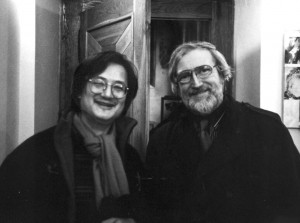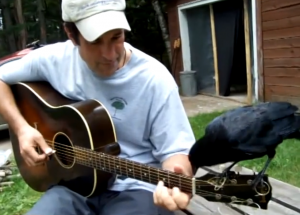We knew it had to be good, but never realised it was this good.
Well presented TEDEd animation – engaging and concise.
time to get back to learning those Bach lute suites again…
Lesson by Anita Collins
Narration by Addison Anderson
Music by Peter Gosling
Animation by Sharon Coleman Graham
Category Archives: Media
Bragg pulls strings to end jail ban
Protest singer Billy Bragg has helped reverse a government ban on steel-strung guitars in prison.
from Yahoo news digest
Miguel Llobet: original recordings introduced by Robert Spencer

Something special –
selftaughtgirl’s recording of a radio broadcast from the 1980s in which Robert Spencer (a leading figure in the early music field, equally accomplished as a singer, lutenist, guitarist, musicologist and teacher) introduces recordings made by Miguel Llobet (3 in duo with Maria Luisa Anido).
Coste: Etude Op 38 No 23
Sor: Etude Op 35 No 22 (ie. Segovia #5)
Llobet: El Testament d’Amelia, El Mestre
Mendelssohn: Song without words Op 62 No 1
Albeniz: Evocacion
Aguirre: Huella
Llobet: Study in E (played by Leif Christensen)
Quijano: Estilo Popular Argentino
Gabriel Estarellas: live concert playing Lauro, Villa-Lobos, Dodgson, & Calatayud
Selftaughtgirl is on the trail again!
First off, this recording of Gabriel Estarellas, introduced by Stephen Dodgson, who came to stay during these recordings. I was always fascinated by the network of well known guitarists in those days – he was a friend of Cheryl Grice, who was living in Oxford at the time.
Blackbird with crow – Curt and Birdie
Another bird on a guitar!
Curt Stager is an ecologist, paleoclimatologist, and science journalist with a Ph.D. in biology and geology from Duke University (1985). He has published over three dozen peer-reviewed articles in major journals includingScience and Quaternary Research, and has written extensively for general audiences in periodicals such as National Geographic , Fast Company, and Adirondack Life. Since 1990, he has also researched and co-hosted Natural Selections, a weekly science program on North Country Public Radio that is syndicated internationally, and has toured widely to offer presentations on his research to audiences ranging, as one colleague put it, “from middle-schoolers to formal scholars.” In 2013, he was named the New York State Professor of the Year by the Carnegie Foundation.
In whatever spare time remains, he performs and records on banjo and guitar (YouTube).
Gino Paoli with an owl on his guitar
Paoli was born in Monfalcone, a little town near Trieste, but moved to Genoa at a young age.
After several different jobs, he was signed to Ricordi with friends and fellow musicians Luigi Tenco and Bruno Lauzi. His first success was the single “La Gatta”, which has been used in Italian language teaching classes in American middle schools and high schools.
“Il cielo in una stanza” was composed in 1959. According to Paoli, the lyrics came to him while lying on a brothel bed. Gazing at the purple ceiling, he thought, “Love can grow at any moment at any place”. Mina‘s single release of the song topped the list of annual sales in Italy and reached Billboard Hot 100. Video performances of the song were included in the movies “Io bacio… tu baci” and “Appuntamento a Ischia”. Later it was featured in the “Goodfellas” movie. Carla Bruni Sarkozy covered the song (mixing French with her native Italian) in her debut album (“Quelqu’un m’a dit”).
Gino Paoli’s debut album – Gino Paoli was released in Italy on October 8, 1961 on Dischi Ricordi.
“Il cielo in una stanza” success was followed by “Sapore di sale” (1963), arranged by Ennio Morricone and believed to be his most famous song.
In the same year he attempted suicide by shooting himself in the heart (the bullet is still inside his chest).
Gino Paoli live
La Gatta
Morricone/Paoli concert
Please, don’t lock up prisoners’ guitars too – Billy Bragg and others

Letter in the Guardian:
As musicians, we are concerned to hear that the use of steel-strung guitars is being prohibited in prisons. We believe music has an important role to play in engaging prisoners in the process of rehabilitation. However, this ability will be seriously undermined if inmates are unable to practise between group sessions.
As most guitars owned or used by inmates in our prisons are steel-strung acoustics, this ruling will mean that these instruments are kept under lock and key until time for a supervised session, if the prison in question has provision for musical tuition.
The stipulation that only nylon strings can be used will not alleviate this situation. There are several practical reasons why nylon strings are not suitable for a steel-strung acoustic guitar, not least the differing methods by which nylon and steel strings are attached to the instrument.
We understand that there must be security protocols when steel-strung guitars are used in prisons, but, until this ruling, access has been at the discretion of staff.
There has been a worrying rise in the number of self-inflicted deaths in the period since this ruling was introduced. Since October 2013, when only one death was reported, there have been a total of 50 self-inflicted deaths, over double the figure for the same period last year.
We would like to know whether the recent changes to the treatment of prisoners – which includes restrictions on books and steel-strung guitars – could be at the root of this steep increase in fatalities.
We urge the minister for justice, Chris Grayling, to urgently look into the causes of the rise in self-inflicted deaths in prison since the introduction of the recent prison service instruction and to explain why steel-strung guitars have been singled out for exclusion.
Billy Bragg Jail Guitar Doors, Johnny Marr, Speech Debelle, Dave Gilmour, Richard Hawley, Scroobius Pip, Guy Garvey, Ed O’Brien, Philip Selway, Seasick Steve, The Farm, Sam Duckworth
Thanks to Nigel Warburton for bringing this to my attention
Stepan Rak: live concert playing his own music

selftaughtgirl’s recording of a radio broadcast from the 1980’s.
Rak: Remembering Prague, Voces de Profundis, & Danza Mauretana
Extraordinary techniques and unbridled enthusiasm.
I had lunch with Stepan and his son in Prague in the 80s, and they surprised me with a wild Russian song during dessert! Great laughs and bonhomie…
Roberto Aussel: live concert playing Lauro, Brouwer, & Rodrigo
selftaughtgirl’s recording of a radio broadcast from the 1980’s.
Lauro: Variations on a Childern’s Song
Brouwer: Guajira Criolla and Danza Characteristica
The elephant in the room

The ever watchful Norman Lebrecht (Follow him on FB:Facebook and on Twitter@NLebrecht) of Slipped Disc has found more bad news for musicians wanting to enter the USA:
A federal regulation on ivory imports came into force on February 25. It applies to ivory used in musical instruments.
Worked African elephant ivory imported as part of a musical instrument will continue to be allowed provided the worked ivory was legally acquired prior to February 26, 1976; the worked elephant ivory has not subsequently been transferred from one person to another person in pursuit of financial gain or profit; and the item is accompanied by a valid CITES musical instrument passport.
What this means is that every string player who has a small piece of ivory in their bow will need to get a passport for each instrument and bow. Every time you buy a new bow, you will need to register it and pay a $75 fee.



